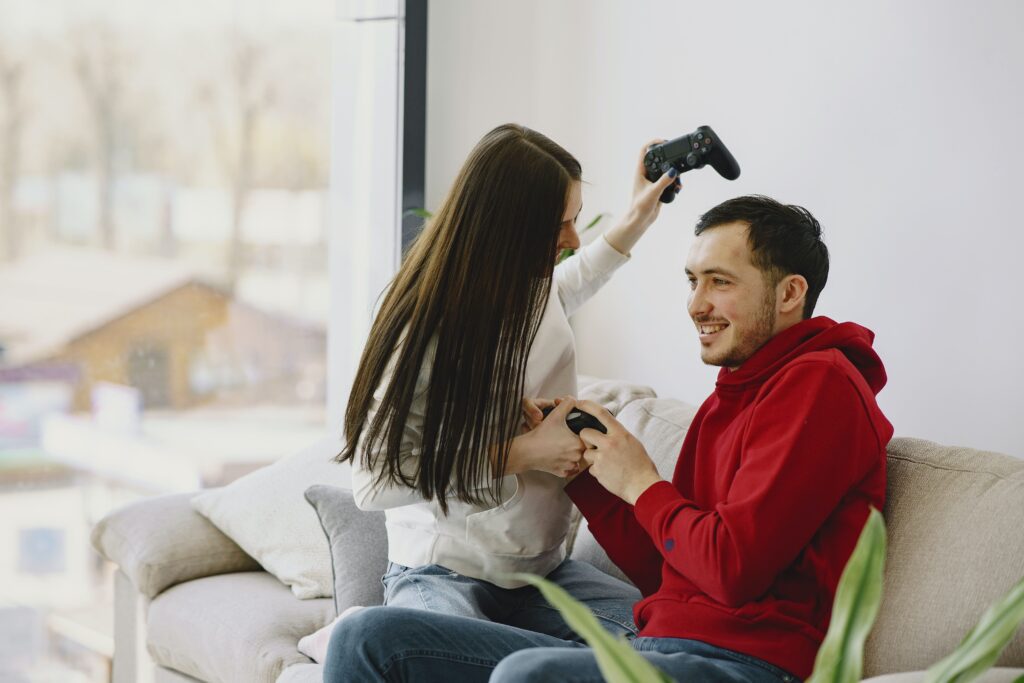By SWNS Staff
NEWS COPY W/ VIDEO + INFOGRAPHIC
Looks like playing video games isn’t a total waste of time. Nearly half of Americans credit their successes in life to playing video games, according to new research.
The survey polled 2,000 Americans about the biggest lessons they’ve learned from video games and found that 47% said gaming prepared them for success, while six in 10 have gained a keener creative eye or better problem-solving skills.
A similar amount (59%) said video games improved their hand-eye coordination and others learned time management (50%).
Conducted by OnePoll on behalf of World of Warships by Wargaming, the survey revealed 42% feel like they’ve learned more life skills through video games than in school.
And the secret to a successful career? Nearly three in four (74%) said being competitive is necessary in the workforce.
While most (82%) find video games to be generally relaxing, three in five also find that competitive video games are stress relieving and 79% even think a little friendly competition can be therapeutic.
Sixty-eight percent admit to getting competitive playing video games, even when they’re playing alone and 46% of Americans admit that they can let their passionate nature get the best of them.
Still, nearly two in three (63%) consider their competitiveness an advantage when it comes to pushing through difficult situations.
However, video games aren’t all about being the best on your own. Respondents also reported enjoying teaming up with others (49%), being challenged (48%) and meeting new people in general (41%).
“It’s clear from the results that gaming has so many benefits to our society,” said Artur Plociennik, Regional Publishing Director, World of Warships by Wargaming. “Whether it’s critical thinking, problem solving or communication – we all have something to gain from gaming. The results show that one of the biggest benefits of gaming is that collaboration with other players.”
Competition can turn a little unfriendly for nearly a quarter of gamers (23%) who have lost respect for a friend because of their lack of gaming skills.
Even though respondents have lost an average of two friends after an intense game – 67% said they always reconnect through gaming.
Good sportsmanship makes for good times, but gamers are most likely to quit if others are behaving disrespectfully (55%) or if they’re on an infuriating losing streak (42%).
Two-thirds (67%) can relate to “rage-quitting,” or being so frustrated by a video game that they quit playing it, needing an average of four days to recover from the awful experience.
Other extreme reactions to frustrating games include yelling obscenities (40%), throwing their controller across the room (33%) or turning off the entire console without saving (31%); one in 10 have even gone as far as throwing out the video game for good.
“Gaming can be so immersive it’s easy to get wrapped up into it and have a rough moment,” continued Plociennik. “At the end of the day, everyone games to have fun and be a part of a community, so it’s all about finding a way to take a step back and remember why you’re gaming in the first place.”
SKILLS PEOPLE LEARNED FROM VIDEO GAMES
- Problem solving (58%)
- Memory (54%)
- Hand-eye coordination (53%)
- Concentration (53%)
- Strategy (50%)
- Multitasking (46%)
- Patience (32%)
- Creativity (30%)
- Social skills (27%)
- Communication (26%)
REACTIONS TO FRUSTRATING VIDEO GAMES
- Yell obscenities (40%)
- Throw controller across the room (32%)
- Turned console off without saving (31%)
- Swore off playing that video game ever again (24%)
- Broke the controller (22%)
- Cried out of anger (21%)
- Unplugged computer to avoid saving the fail (20%)
- Broke a keyboard (17%)
- Snapped at a family member/significant other (16%)
- Punched a wall (10%)
